by Mark Harvey
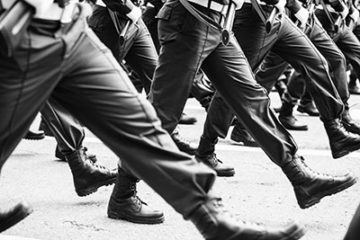 Where I live in Colorado there are unstable elements of the landscape that sometimes fail. In severe cases, millions of tons of rock, silt, sand, and mud can shift, leading to massive landslides. The signs aren’t always evident because the breakdown in the structural geology often happens quietly underground. The invisible changes can take hundreds or thousands of years, but when a landslide takes place, it is fast and violent. And the new landscape that comes after is unrecognizable.
Where I live in Colorado there are unstable elements of the landscape that sometimes fail. In severe cases, millions of tons of rock, silt, sand, and mud can shift, leading to massive landslides. The signs aren’t always evident because the breakdown in the structural geology often happens quietly underground. The invisible changes can take hundreds or thousands of years, but when a landslide takes place, it is fast and violent. And the new landscape that comes after is unrecognizable.
Democracies, like landscapes, take time to erode and the erosion isn’t always obvious to those living within its structure. Seemingly small things like villainizing the press, vicious attacks on political candidates, gerrymandering districts, voter suppression, and allowing vast amounts of money to enter the campaign process are all erosive forces that, taken individually, don’t seem like much. But taken together, over time, they break down democracies and invite darker forms of government.
When you start to speak about democracy in this country, it can get wispy and abstract in a hurry. Most of us were taught about democracy as school children in breathless, fabled terms. It’s hard to get past the myths of our founders and our founding to consider both how young and how clunky our democracy really is. For perspective, the oldest tree in the country is a bristlecone pine named Methuselah that sits in eastern California and had its beginning as a seed over 4,000 years before the convention in Philadelphia that hot summer of 1787. We think of our democracy as about 230 years old from the time when the Constitution was signed and George Washington first took office. But it’s only been 156 years since African Americans were freed and only about 100 years since women were guaranteed the right to vote by the Nineteenth Amendment. So our true democracy, at least on paper, is really only about 100 years old, closer to the lifespan of a cottonwood tree. And yet just 100 years into it, since the day when everyone was theoretically given the right to vote, things in the United States are wobbling and teetering.
The signs of a breakdown in the American political landscape are large and small. We’re at a point of instability not seen—in my opinion–since the Civil War and we have more than invisible rumblings warning us. The attack on the US Capitol on January 6 shocked most of us, but perhaps what is more shocking is the loutish response of Congress. Its unwillingness to consider and then begin the journey of repairing an almost complete breakdown in our democracy is akin to a fire brigade casually polishing parked fire engines while half the town is in flames.
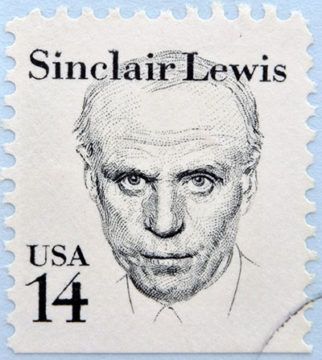
If you bring up the idea of a full-on authoritarian or fascist government taking root in the United States, you’re often met with the response of, “It can’t happen here.” That sentiment is so common and has so long been taken for granted that it became the title of Sinclair Lewis’s 1935 novel. In the novel It Can’t Happen Here, Lewis portrays a power-hungry American senator, Berzelius Windrip, as he wins the presidential election and transforms the United States into a full-on fascist state. Windrip forms a paramilitary force entirely beholden to him, named The Minute Men, eliminates political enemies with kangaroo courts run by military judges, disenfranchises women and minorities, and eliminates the federation of states, replacing them with administrative regions. His vice president eventually flees to Canada, Windrip is overthrown in a coup by his secretary of state, and the novel ends with the beginnings of a civil war to overthrow the fascist government.
There are some eerie parallels these days to the plot of It Can’t Happen Here. We have numerous signs of our losing a grip on a legitimate democracy. In fact, the political moves made across the country during the previous administration and which, in many cases, continue today in individual states resemble the to-do list from an edition of Dictators for Dummies: 1) Disempower the press; 2) Gaslight the populous until the truth is completely marginalized; 3) Disenfranchise voters not your own; 4) Divide citizens into an us and a them.
The willingness of millions of Americans to villainize the free press per Donald Trump’s invocations of “fake news” suggests that millions of Americans really don’t value a free press. It’s no mistake that the founders included freedom of the press in the First Amendment and didn’t even get to states’ rights until the Tenth Amendment in the original Bill of Rights. Thomas Jefferson, in correspondence to Edward Carrington, wrote, “…were it left to me to decide whether we should have a government without newspapers or newspapers without a government, I should not hesitate a moment to prefer the latter.”
If you wonder why the press is often considered the fourth branch of government and a true guardian of democracy, please revisit the Teapot Dome scandal, Watergate, Vietnam, the Walter Reed Medical scandal, and thousands of other examples of the press rooting out corruption and malfeasance. It’s impossible to conceive of a free society without a healthy, uninhibited, hardworking free press.
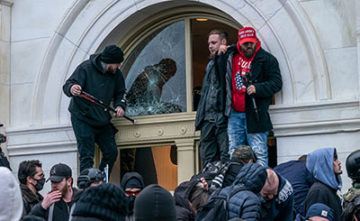
Part and parcel to weakening the press in the wannabe dictator’s handbook is trying to crush the truth, challenge science when useful, and treat facts as if they are electives. When Trump called the 2020 election results fraudulent, there were some fairly easy tests of whether the accusations were true. One test was how the judicial branch treated the challenges to the election. Fifty-nine times, courts across the nation from the local level to the Supreme Court rejected those challenges. Had all the judges been appointees of the opposite party one could claim a judicial conspiracy, but several of the judges (including three in the Supreme Court) were appointed by Trump. The second test is of course why those manipulating votes would not do the same on down-ballot candidates: why would those taking the trouble to conjure up false votes for a presidential candidate not do the same for senator, governor, or representative on the same ticket. Again, though, the worrisome aspect of all this is less a president’s willingness to gaslight Americans than the willingness of Americans to be gaslighted.
Obviously one of the most effective ways to break down a system that relies on free and fair voting is to take the vote away from those you don’t want participating in your government. Our original version of disenfranchising voters was the Jim Crow Laws in the south that required Black voters to pass bizarre and capricious literacy tests at the polls and pay a then exorbitant polling tax. One of the literacy tests in Mississippi involved asking Black people to read out loud some of the more arcane sections of the Mississippi constitution to the poll clerk and then, in some cases, explain what the reading meant. It was up to the clerk to decide if the aspiring voter was literate enough to be registered.
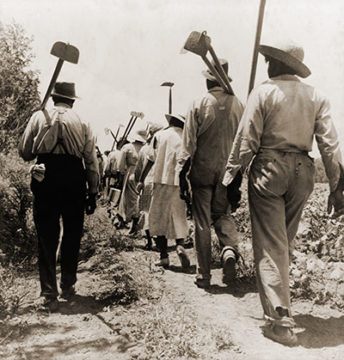
White Mississippians were so creative at suppressing the black vote that they managed to keep registered Black voters to rates under 5% throughout the state well into the 20th century. And now states are at it again with proposed voter suppression laws not seen since the end of reconstruction after the end of the Civil War. According to the Brennan Center for Justice, in 2021, 33 states have introduced 165 bills to restrict voting access. The most common and effective voter suppression bills limit mail voting, limit early voting, reduce polling places, and require voters to re-register frequently. In short, they make voting more difficult, especially for minorities in urban areas.
A portion of American society has long toyed with fascism and some of our most famous and revered citizens have endorsed it. Henry Ford, admired for his innovation and producing millions of low-cost cars, was openly anti-Semitic and villainized Jews on an international scale. In terms of political mechanics, one of the first moves in building a fascist society is to establish an us versus them: the supposedly stalwart upstanding citizens versus the supposedly furtive ones who will destroy our society.
In 1918 Ford purchased his local newspaper, The Dearborn Independent, and then published over 90 articles about the “Jewish Question.” Ultimately, he had the articles bound into four volumes from 1920 to 1922 and then printed several hundred thousand copies. The first volume was titled, The International Jew: the World’s Foremost Problem. Ford’s antisemitic texts were published in various languages, including German, and Hitler became a great admirer of Ford and his writings. He is said to have had copies of The International Jew in his office and some of his lieutenants cited the writings as what inspired their own political philosophy. Ford is the only American mentioned in Mein Kampf. Wouldn’t it be unsettling to think that some of Germany’s ideas about antisemitism in the 1930s and 1940s were an American export, produced by that most all-American industrialist, Henry Ford.

There are numerous examples of governors at the state level doing creepy things evocative of characters in It Can’t Happen Here. The governor of South Dakota, Kristi Noem, announced last week that she is going to send 50 national guard members of her state to the Mexico border to keep out undocumented immigrants. She says she will do it with private funds from Willis Johnson, a Tennessee billionaire. Her plans have two quietly fascist elements to them. Using the national guard in a sort of mercenary-for-hire fashion is reminiscent of the fictional president in Lewis’s novel organizing his own paramilitary forces. And the rabid language about the dangers of undocumented immigrants has a nasty us, the law-abiding victims, versus them, the marauding Huns knocking at our border.
The economist Rudiger Dornbusch put it well when he said, “In economics, things take longer to happen than you think they will, and then they happen faster than you thought they could.” I suspect the same is true in politics. While our current president, Joe Biden, embodies qualities that democracies need—support of the free press, support of full voting rights, forbearance, etc., we are fooling ourselves to think that the elements of authoritarianism and fascism have gone dormant or been eliminated in this country. There are hundreds of paramilitary groups across the nation organized around racist dogma and conspiracy theories. With social media, they can easily spread their organizing principles to like-minded men and women. Most of them profess “freedom” but in reality, they define everything that is anti-democracy: hatred of the free press, disregard of facts, anti-intellectualism, lack of tolerance for diverse races and religions, and the wrecking of free and fair elections.
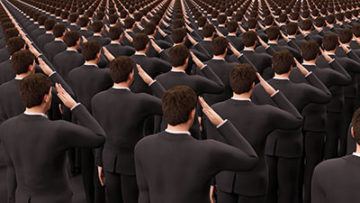 Authoritarian forms of government are easy and lazy in a way. To have one person make the rules, define reality, and issue summary justice, frees people from having to think for themselves. In a way, it’s reverting to childhood and taking on a parental figure whom you believe will protect you and guide you through an otherwise complicated world. Authoritarian governments simplify things with strict rules, often enforced with summary executions. Real freedom and democracy are what’s hard—and very messy. When a people endeavor to be inclusive, strive for equal opportunity, and attempt civil, informed discourse, they have to work very hard. It involves meetings, assemblies, a robust and free press, millions of opposing opinions, vote after vote, and forbearance.
Authoritarian forms of government are easy and lazy in a way. To have one person make the rules, define reality, and issue summary justice, frees people from having to think for themselves. In a way, it’s reverting to childhood and taking on a parental figure whom you believe will protect you and guide you through an otherwise complicated world. Authoritarian governments simplify things with strict rules, often enforced with summary executions. Real freedom and democracy are what’s hard—and very messy. When a people endeavor to be inclusive, strive for equal opportunity, and attempt civil, informed discourse, they have to work very hard. It involves meetings, assemblies, a robust and free press, millions of opposing opinions, vote after vote, and forbearance.
The trouble with allowing yourself to drift into an apathetic fog and letting our democracy break down and slip into the sea is that over the few thousands of years of the modern human experience, other forms of government have generally lead to great suffering, the crushing of free expression, and sometimes genocide. Winston Churchill put it well when he said: “Many forms of Government have been tried, and will be tried in this world of sin and woe. No one pretends that democracy is perfect or all-wise. Indeed it has been said that democracy is the worst form of Government except for all those other forms that have been tried from time to time…”
Five or ten years from now, I would be pleased if what I’m writing here were to be considered embarrassingly alarmist. But I grew up in an America that was relatively stable and confess to being one of those who always thought, it can’t happen here. Without the rigorous work and vigilance required of citizens who value democracy, I think it could happen here. Some Americans are already waging a ferocious fight to protect the freedom of the press, to protect the truth—lofty though that may sound—to protect voting rights, and to maintain one polity free of the despicable out-casting of those who are different or in the minority. Those who aren’t in the fight need to join. By revisiting the history of both our strongest moments of being a democracy and our periods of slouching toward fascism, we have the capacity to right this ship and save the best form of government going. The Irish-American pamphleteer Thomas Paine said, “What we obtain too cheap, we esteem too lightly: it is dearness only that gives everything its value.” Many of us esteem too lightly what we’ve obtained too cheaply with our freedom here, but letting those freedoms and our democracy deteriorate more than they already have could bring this land a long, painful period of authoritarianism we’ve never known.
